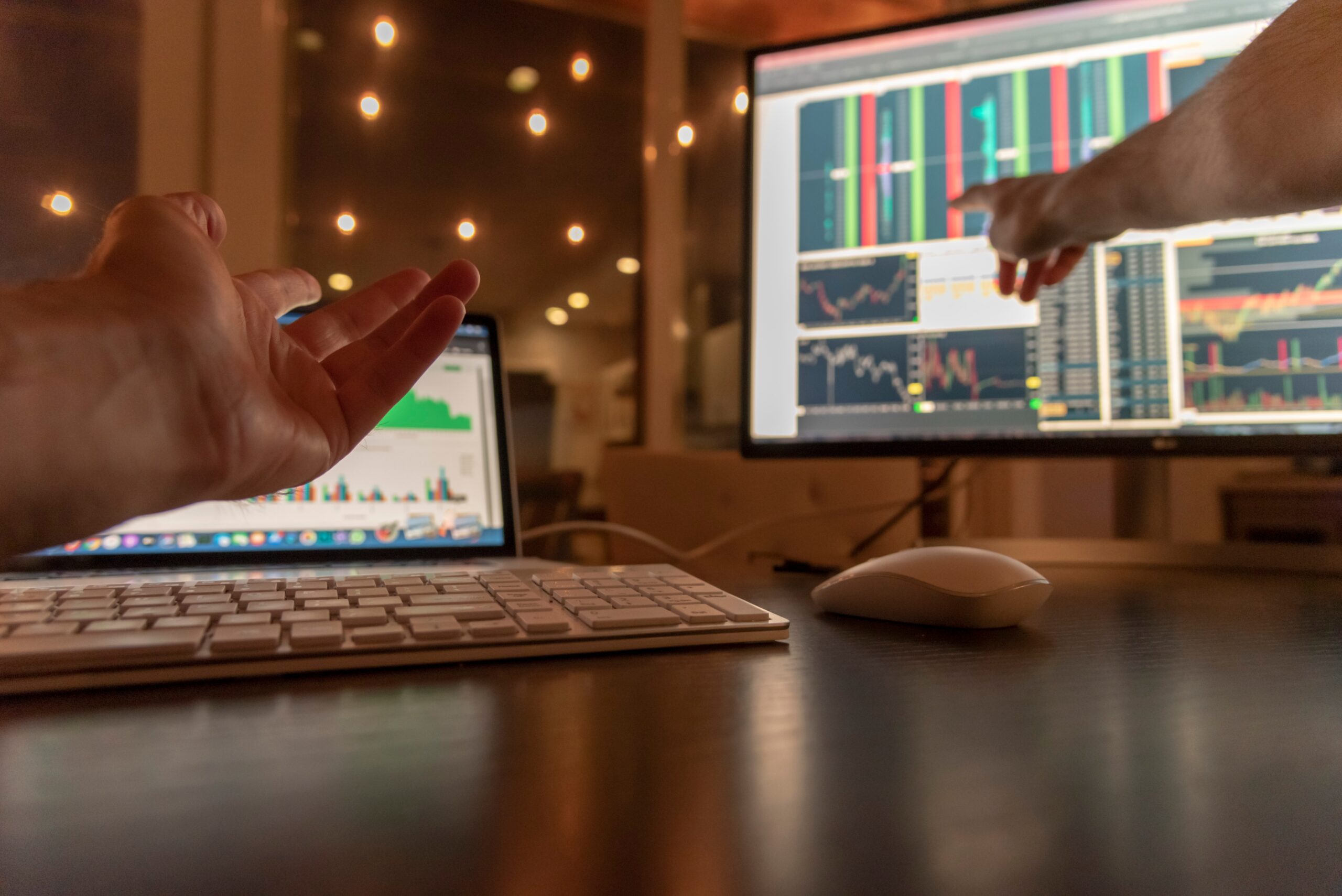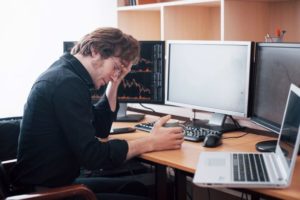
Share this article:
4 Takeaways From My Best Trading Year So Far
Day traders are a special breed. They have to be willing to lose money in order to make money and they're often up at night obsessing over what will happen with the market next. It's not for everyone, but it can provide an exciting challenge that many people crave. I'm always happy to share what I know about trading so that others can learn from my experience, good or bad, which is why I'm writing this post today. I would like to share with you some key takeaways from my best year ever.

Besides mastering your psychology, having a proven trading system that you trust is one of the most important steps to increasing your profits and optimizing your trading.
Trading psychology is important for success in the markets
The two areas that make the most impact on your trading career are your system and your psychology. If your trading system is sound and you have the patience to work through periods of drawdown, then it's likely that the only thing holding you back from success in this industry are issues with psychology. Trading can be very emotional at times and many people who start out get caught up in their own feelings which ultimately lead them down a path where they lose more trades than they had hoped due to emotional responses to market conditions or bad beats.
I want to share with you some of my thoughts on how I managed trading in this period, which for me was one of the most stressful periods ever traded (in a good way). Besides securing a rock solid trading system, I did a lot of work making sure that I was relaxed and in the peak performance state before I sat down to trade. This helped immensely with remaining patient and waiting for my best setups. Second, I stuck to scalping during peak trading hours. Even if I could anticipate a bigger move coming I remained disciplined and stuck to my trading plan. Although I left some money on the table, I know myself well enough to know that if I chased bigger moves then my chances of losing money increased exponentially.
The most common trading mistakes are overtrading and emotional responses to market fluctuations
My most common mistake during the pandemic was over trading. I would likely over trade in one of two conditions. Either I am attempting to get money back after losing a trade or greed has set in and I am attempting to make more money after I am already up big. In both cases, I usually ended up giving some or all of my gains back.
It took several weeks to shake the habit of over trading but once I did I was able to KEEP the money I was making more consistently. That, in turn, gave me more confidence to wait for the next best set up and not just simply take a trade due to boredom or a "hunch.
A trader's best friend is discipline
Over the past year, I have learned that discipline is a trader's best friend. Trading requires being disciplined for extended periods of time without any real assurance of success and with plenty of risks to keep you up at night. In trading, one trades as if he or she will live forever - like there are no constraints on time.
There were times last year where I was convinced that my analysis was correct even though the situation didn't completely fit my trading rules. 80% of these times, when I took the trade, it ended up being a loser. This was a great lesson to just remain more patient and wait until the situation completely fit your trading rules.
Most of the times that I took a non disciplined trade was due to me staring at the charts and feeling like I am not seeing enough "action". These are natural responses that I had to grow out of. It only took losing all of my gains several days in a row.
Traders should have a plan before entering the market
Having a trading plan before you enter into a trade is the best thing you can do for your trading psychology. The trade plan should be the same every time and not just when things are going well or bad. This way, traders know exactly what to expect from their trades no matter what happens in the market.
This is one of my favorite lessons that I learned last year because it has helped me get a lot more disciplined. With a plan beforehand, a lot of the emotion was taken out of the equation when it was time to enter a trade. And, speaking from experience, having emotions in check while you are trading is one of the best and most profitable changes I have made to how I approach my trades.
Thank you for reading this post about my best year ever. I hope that it has helped to provide some clarity around what day trading is and how it can be an exciting challenge for those who are interested in the process of making money from their investments. If you're looking to get started, take our free assessment below to find out whether or not day trading would work well with your personality type so that you can make a more informed decision on which investment strategy will work best for you. You'll also receive access to exclusive content and resources when you complete this form!

Sign Up and Subscribe for quick updates!
Enter your name and email below to get notified of when the next blog post is released. It’s that easy.
Share this article:

PRODUCT
RESOURCES
We are not Financial Advisors or a Broker/Dealer: Neither Tradechology nor any of its officers, employees, representatives, agents, or independent contractors are, in such capacities, licensed financial advisors, registered investment advisers, or registered broker-dealers. MLH Capital does not provide investment or financial advice or make investment recommendations, nor is it in the business of transacting trades, nor does it direct client commodity accounts or give commodity trading advice tailored to any particular client’s situation. Nothing contained in this communication constitutes a solicitation, recommendation, promotion, endorsement, or offer by MLH Capital of any particular security, transaction, or investment.
Securities Used as Examples: The securities used in this example are used for illustrative purposes only. The calculation used to determine the return on investment “ROI” does not include the number of trades, commissions, or any other factors used to determine ROI. The ROI calculation measures the profitability of investment and, as such, there are alternate methods to calculate/express it. All information provided are for educational purposes only and does not imply, express, or guarantee future returns. Past performance shown in examples may not be indicative of future performance. Testimonials appearing on this website may not be representative of other clients or customers and is not a guarantee of future performance or success.
Investing Risk: Trading securities can involve high risk and the loss of any funds invested. Investment information provided may not be appropriate for all investors and is provided without respect to individual investor financial sophistication, financial situation, investing time horizon, or risk tolerance.
Testimonials appearing on this website may not be representative of other clients or customers and is not a guarantee of future performance or success



